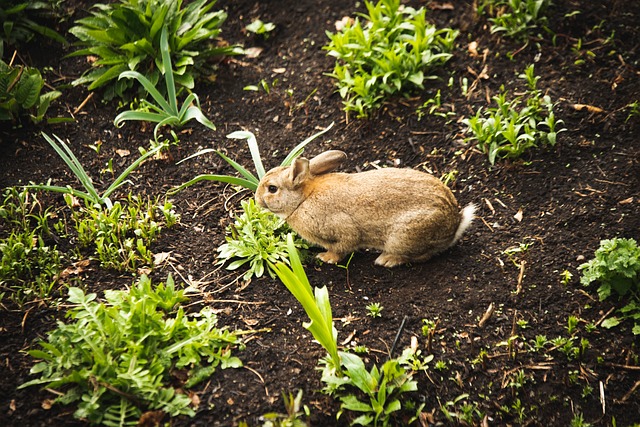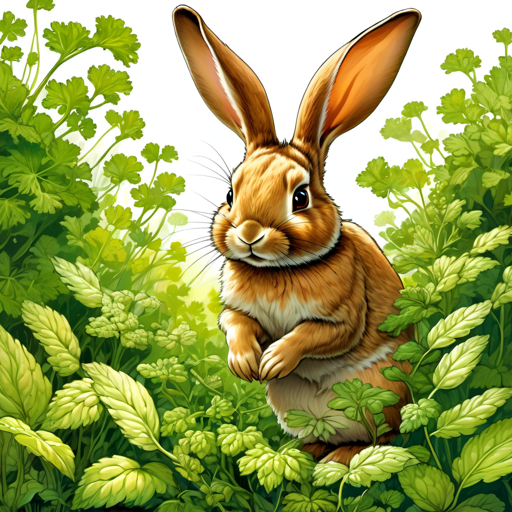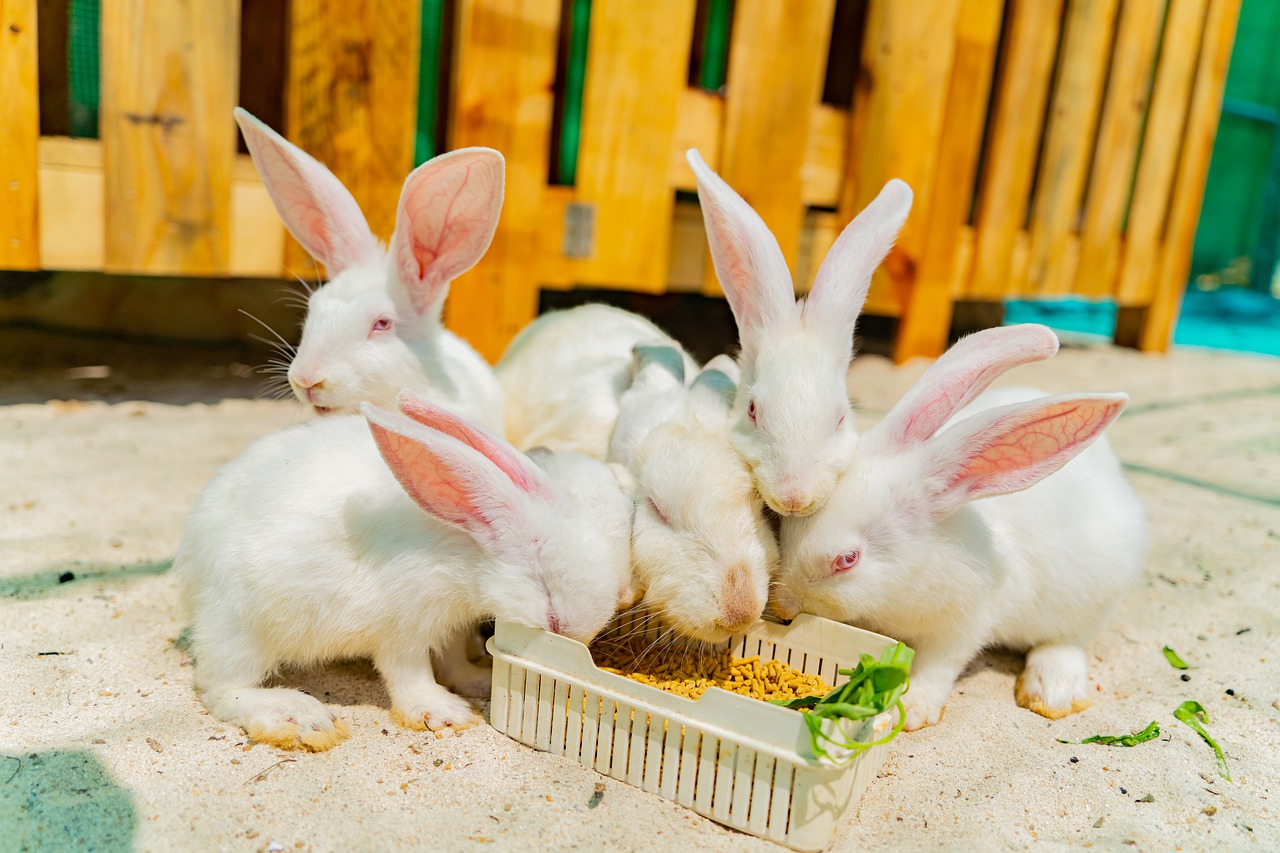Rabbits can eat a variety of vegetables, As responsible pet owners, we want to provide our furry friends with the best nutrition possible. Luckily, rabbits are natural herbivores and can thrive on a diet rich in fresh vegetables. But with so many options available, knowing which ones are the best for your bunny can be overwhelming.
Don’t worry; we’ve got you covered! Here are 7 of the best vegetables for your rabbit that will keep them healthy and satisfy their taste buds.
So, please sit back, relax, and let’s explore the world of rabbit-friendly vegetables together.
Understanding Rabbits and their Dietary Preferences
Rabbits have unique dietary preferences that stem from their natural herbivorous nature. Understanding what rabbits need in their diet is crucial for optimal nutrition and ensuring their overall health and well-being.
Rabbits have a delicate digestive system that requires a high-fibre diet to maintain healthy gut function. Fresh vegetables are important to a rabbit’s diet as they provide essential nutrients and hydration.
However, not all vegetables suit rabbits; some can be harmful or cause digestive issues. Leafy greens such as Kale, spinach, and romaine lettuce are excellent options for rabbits, as they are rich in vitamins and minerals. Carrots and bell peppers are well-tolerated by rabbits and provide a crunchy texture that rabbits enjoy.
Introducing new vegetables slowly to your rabbit’s diet is important to avoid any digestive upsets. Start by offering small amounts and gradually increase the portion size. Be mindful of any adverse reactions, such as diarrhoea or bloating, and consult your veterinarian if you have any concerns.
You can ensure their overall health and happiness by understanding your rabbit’s dietary preferences and providing them with a variety of safe and nutritious vegetables. Remember, a well-balanced diet is key to keeping your furry friend thriving!

7 Best Vegetables for Your Rabbit
Rabbits have a penchant for veggies, but some stand out. Here are the top seven vegetables that rabbits adore:
1)Cilantro
Cilantro is a popular herb in human cuisine and a delicious and nutritious treat for your pet rabbit. This vibrant green herb is packed with essential vitamins and minerals that can contribute to your rabbit’s overall well-being.
Cilantro is a fantastic source of vitamin K, which helps with blood clotting and bone health. It also contains vitamin C, an important antioxidant that supports your rabbit’s immune system. Additionally, cilantro provides essential minerals like potassium and manganese, crucial for proper bodily functions.
The unique flavour and aroma of cilantro make it an enticing treat for rabbits. Its crisp texture and refreshing taste can add variety to your rabbit’s diet, keeping them excited about mealtime. Whether sprinkled on top of their regular pellets or offered as a standalone snack, cilantro will surely be a hit with your furry friend.
As with introducing any new vegetable, start by offering small amounts of cilantro to your rabbit and monitor their response. You can gradually increase the portion size if they enjoy it and experience no adverse effects. Always wash the cilantro thoroughly before serving to remove any potential pesticides or dirt.
2)Leafy lettuces
Leafy lettuces are another great option for your pet rabbit’s diet. Not only are they tasty and refreshing, but they also provide a variety of essential nutrients. Lettuces such as romaine, green leaf, and red leaf are all safe and healthy choices for your furry friend.
These leafy greens are packed with fibre, which helps maintain a healthy digestive system and prevents common rabbit health issues like gastrointestinal stasis. They are also a good source of vitamins A and K, which support eye health and blood clotting. Additionally, lettuces provide hydration to your rabbit, as they have a high water content.
When offering lettuce to your rabbit, washing them thoroughly to remove any potential pesticides or dirt is important. It’s also best to feed lettuces in moderation, as they have a high water content and can cause loose stools if consumed in large quantities. Introduce lettuces gradually into your rabbit’s diet and monitor their response to ensure they tolerate it well.
By including leafy lettuce in your rabbit’s meal plan, you can provide them with a delicious and nutritious option that supports their overall health and well-being. So, remember to add a handful of leafy greens to your rabbit’s bowl and watch them happily munch away!
3)Arugula
With its distinct peppery flavour and crisp texture, Arugula is a delightful vegetable to add to your rabbit’s menu. This leafy green adds variety to their diet and provides essential nutrients for their overall health. Arugula is rich in vitamin K, which promotes healthy blood clotting and supports bone health.
It also contains vitamin A, essential for good vision, and vitamin C, an antioxidant that boosts the immune system. Additionally, Arugula is a good source of folate and calcium, both important for maintaining optimal health in rabbits.
Start with small amounts when introducing Arugula to your rabbit and monitor their response. Some rabbits may have sensitive stomachs, so it’s important to watch for any signs of digestive upset. You can gradually increase the portion size if your rabbit enjoys Arugula and has no adverse effects.
Remove any potential pesticides or dirt before washing the Arugula thoroughly before serving. As with any new vegetable, introduce it gradually to your rabbit’s diet to ensure their digestion adjusts smoothly. So add some peppery goodness to your rabbit’s plate, and watch them enjoy this nutritious treat!
4)Basil
If you want to add flavour to your pet rabbit’s diet, look no further than basil! This aromatic herb enhances the taste of dishes in human cuisine and provides a tasty and nutritious treat for your furry friend.
Basil is a rich source of vitamins A and K, essential for your rabbit’s eye health and blood clotting abilities. It also contains antioxidants that support your rabbit’s immune system and can contribute to their overall well-being.
To introduce basil to your rabbit’s diet, start by offering small amounts and monitor their response. Some rabbits may have sensitive stomachs, so it’s important to watch for any signs of digestive upset.
You can gradually increase the portion size if your rabbit enjoys basil and shows no adverse effects. Remove any potential pesticides or dirt before washing the basil thoroughly before serving. Your rabbit will appreciate the aromatic and flavorful addition to their meals, making basil a great option to spice up their diet.
5)Celery leaves
Celery is an excellent source of nutrients for rabbits, and its leaves are a tasty addition to their diet. Not only do celery leaves provide a satisfying crunch, but they also offer a variety of essential vitamins and minerals.
Rich in vitamin C, celery leaves can boost your rabbit’s immune system and support their overall health. They also contain vitamin K, which helps with blood clotting and bone health. Additionally, celery leaves are a good fibre source, promoting healthy digestion in rabbits.
Introduce celery leaves to your rabbit’s diet by offering small amounts and monitoring their response. Some rabbits may have sensitive stomachs, so it’s important to watch for any signs of digestive upset. If your rabbit enjoys celery leaves and shows no adverse effects, you can gradually increase the portion size.
Remember to wash the celery leaves thoroughly before serving to remove any potential pesticides or dirt. Your furry friend will appreciate the added crunch and flavour that celery leaves bring to their mealtime. So include some celery leaves in your rabbit’s menu and watch them happily nibble away!
6) Dandelion greens
Dandelion greens are not just pesky weeds in your garden; they are a nutritious and delicious treat for your pet rabbit! These vibrant greens are packed with vitamins and minerals that can contribute to your rabbit’s overall health and well-being. Dandelion greens are rich in vitamins A, C, and K, essential for your rabbit’s immune system, bone health, and vision. They also contain calcium and potassium, crucial for proper bodily functions.
When introducing dandelion greens to your rabbit’s diet, start with small amounts and monitor their response. Some rabbits may have sensitive stomachs, so it’s important to watch for any signs of digestive upset. You can gradually increase the portion size if your rabbit enjoys dandelion greens and shows no adverse effects.
Like any new vegetable, wash the dandelion greens thoroughly before serving to remove any potential pesticides or dirt. Your rabbit will love these nutritious greens’ crunchy texture and earthy flavour. So, go ahead and add some dandelion greens to your rabbit’s menu and watch them happily munch away!
7)Kale
Often touted as a superfood for humans, Kale is also a fantastic vegetable for your pet rabbit. This leafy green is packed with essential nutrients and provides a satisfying crunch that rabbits love. Kale is a great source of vitamins A, C, and K, crucial for your rabbit’s overall health and well-being. Vitamin A supports good vision, while vitamin C boosts the immune system. Vitamin K helps with blood clotting and promotes strong bones.
Introducing Kale to your rabbit’s diet is simple. Start by offering small amounts and monitor their response. You can gradually increase the portion size if your rabbit enjoys Kale and experiences no adverse effects. Remember to wash the Kale thoroughly before serving to remove any potential pesticides or dirt. Adding Kale to your rabbit’s menu can provide them with a nutritious and tasty option to keep them healthy and satisfied. So, don’t hesitate to include Kale in your furry friend’s daily diet and watch them happily nibble away!

FAQs
Can rabbits eat vegetables every day?
Absolutely! Rabbits thrive on a diet rich in fresh vegetables. However, it’s important to offer a variety of vegetables and not rely on just one type. This ensures that your rabbit receives a balanced mix of nutrients. Remember to introduce new vegetables slowly and monitor your rabbit’s response.
How much vegetables should I feed my rabbit?
A good rule of thumb is to offer about one cup of vegetables per two pounds of your rabbit’s body weight. This can be spread out over two or three servings throughout the day. Monitoring your rabbit’s weight and adjusting the portion size accordingly is important.
Can rabbits eat all parts of vegetables?
In most cases, rabbits can eat vegetables’ leaves and stems. However, removing any tough or woody parts that may be difficult for your rabbit to chew and digest is important. Also, avoid feeding your rabbit any parts of the vegetable that are potentially toxic, such as the seeds or pits.
Can rabbits eat vegetables that are slightly wilted?
It’s best to offer fresh vegetables to your rabbit, as wilted vegetables may have lost some of their nutritional value. However, if the vegetables are only slightly wilted and still safe for human consumption, your rabbit can still enjoy them in moderation.
Are there any vegetables that rabbits should never eat?
Yes, there are a few vegetables that can be harmful to rabbits. Avoid feeding them onions, garlic, potatoes, and any vegetables from the nightshade family. Also, limit the amount of high-sugar vegetables, such as corn and peas, as they can cause digestive issues.
Can rabbits eat vegetables from the grocery store?
Yes, rabbits can eat vegetables from the grocery store if they are fresh and free from pesticides or harmful chemicals. It’s important to wash the vegetables thoroughly before serving them to your rabbit to ensure their safety.
Remember, every rabbit is unique, so it’s always a good idea to consult your veterinarian for specific dietary recommendations for your furry friend.
Conclusion
After exploring the world of rabbit-friendly vegetables, it’s clear that plenty of options exist to keep your beloved pet rabbit happy and healthy. From the crisp and refreshing taste of cilantro to the satisfying crunch of celery leaves, these vegetables provide essential nutrients and add variety to your rabbit’s diet.
By understanding your rabbit’s dietary preferences and introducing new vegetables slowly, you can ensure their digestive system adjusts smoothly and avoid any adverse effects. Always wash vegetables thoroughly to remove any pesticides or dirt before serving them to your furry friend.
With the right balance of vegetables, your pet rabbit will thrive and enjoy mealtime to the fullest. So, explore the flavours and textures of these 7 best vegetables for your pet rabbit. Your bunny will thank you with happy hops and a contented munching sound!

